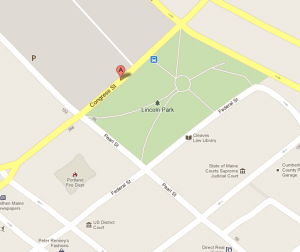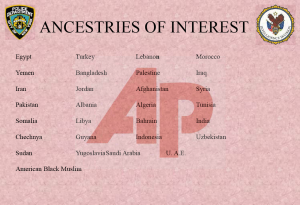How Do You Profile J. Edgar Kelly with Almost No Mention of Domestic Spying?
In 1974, the NYT made history with a story that reported,
An extensive investigation by the NYT has established that intelligence files on at least 10000 U.S. citizens were maintained by a special unit of the CIA
In 2005, the NYT again made history by exposing illegal domestic wiretapping.
Yet today’s NYT managed to publish a 2,500-word story depicting Ray Kelly as some sort of J. Edgar Hoover figure with little mention–much less criticism–of the domestic spying Kelly’s NYPD conducts on New Yorkers.
Much of the article vents complaints that Kelly has gotten remote, that he no longer cooks spaghetti for his officers. It buries an on the record quote from the president of the Sergeants Benevolent Association saying, “Among the rank-and-file, and even among the brass when I have talked to them, they are dying for a change” in the second-to-last paragraph.
But the five paragraphs addressing the rising number of scandals associated with the NYPD are striking for the way they deal with revelations of the domestic spying operation Kelly now oversees.
After years of undeniable success, Commissioner Raymond W. Kelly is going through turbulent times, confronted with a steady drip of troublesome episodes. They include officers fixing traffic tickets, running guns and disparaging civilians on Facebook, and accusations that the Police Department encourages officers to question minorities on the streets indiscriminately. His younger son has been accused of rape, though he has not been charged and maintains his innocence. On Thursday, in an episode that Mr. Kelly said concerned him, an officer killed an 18-year-old drug suspect who was unarmed.
[snip]
He has built a counterterrorism machine with tentacles in 11 foreign cities, irritating federal agencies. There has been no successful terrorist attack on his city while he has been commissioner. He has instead been engulfed in the past year largely by familiar police corruption story lines, of human beings succumbing to greed or audacity.
Over the past year, two officers charged with raping a woman were fired after being acquitted of rape but found guilty of official misconduct. A broad ticket-fixing scandal flared in the Bronx; when the accused officers were arraigned, hundreds of officers massed in protest, some denouncing Mr. Kelly. Eight current and former officers were charged with smuggling illegal guns. Narcotics detectives were accused of planting drugs on innocent civilians. An inspector needlessly pepper-sprayed four Occupy Wall Street protesters, invoking memories of the scrutiny and mass arrests of protesters during the 2004 Republican National Convention, and giving the nascent movement its first real prime-time moment.
Civil rights advocates have assailed the department’s expanded stops of minorities on the streets. Several officers denigrated West Indians on Facebook. Muslims have denounced the monitoring of their lives, as Mr. Kelly has dispatched undercover officers and informants to find radicalized youth.
This year began with the revelation that a film offensive to Muslims, which included an interview with Mr. Kelly, had been shown to many officers.
The foreign intelligence “irritates federal agencies.” “Muslims have denounced” domestic spying. An inaccurate and counterproductive film is “offensive to Muslims.” The NYT seems anxious to dissociate itself from any criticism of the domestic spying, as if it’s something only the targets should worry about, as if incorporating Islamophobia into police training has no negative effects.
Worse, the juxtaposition of the irritated federal agencies with the proclamation that there has been no successful attack seems to be an attempt to justify the domestic spying. Never mind that the two most serious attempted attacks–by Faisal Shahzad and Najibullah Zazi–were not discovered by Kelly’s domestic spying. Never mind that the investigation into Zazi’s plot was significantly harmed when the NYPD tipped Zazi off to it through his imam, whom the NYPD believed to be a reliable informant.
With the transition, “[h]e has instead been engulfed … by familiar police corruption story lines, of human beings succumbing to greed or audacity,” the article logically distinguishes the domestic spying from the other things, the real scandals, according to the NYT.


